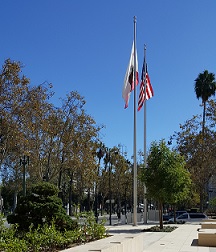
 |
|
What is the National Language of the Philippines?
The national language of the Philippines is Filipino, which is Tagalog-based. Article 14 of the 1987 Philippine Constitution states that:...More >>Why would you need an interpreter in Tagalog?
Most Tagalog-speaking Filipinos speak English. English is the medium of instruction used in the public and private schools, colleges and universities in the Philippines...More >>Do all Filipinos speak English?
No. Just to clarify here, I refer to Filipinos whose first language is Tagalog, like myself. They may be U.S. citizens now, been staying in the U.S. for 2, 20 or 40 years...More >>Who are the typical clients of the Tagalog interpreter?
A Tagalog interpreter is usually called upon to interpret for a native-speaker in Tagalog who just came from the Philippines and does not have the familiarity with the English language as spoken and used in the U.S...More >>How did you get started as an interpreter?
I started court interpreting when I worked as a legal researcher at the regional trial courts in the Philippines. These courts are similar to the superior courts in California...More >>What are the qualities to look for in a Tagalog interpreter?
An interpreter has to have a more than average grasp of Tagalog and English. Fluency is the key...More >>What is the difference between legal and medical interpreting?
In legal interpreting, an interpreter has to be accurate, avoiding any addition, such as embellishments, or omissions, such as editing...More >>Are there ethical rules that a Tagalog court interpreter should follow?
There are laws that govern professional conduct for interpreters, such as Rule 984.4 of the California Rules...More >>Are there ethical rules that a medical interpreter in Tagalog should follow?
Yes. One of the most comprehensive and well written materials on the role of medical interpreters and the code of ethics is contained in "Medical Interpreting and Cultural Competency" from Interpreter Services...More >>